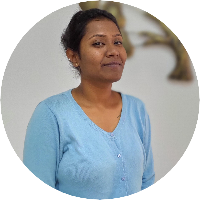But I must explain to you how all this mistaken idea of denouncing pleasure and praising pain was born and will give you a complete account of the system and expound the actual teachings of the great explore
Contact Us
Transforming Education Practices in Rural India and Providing Children With Quality Learning
Education is considered to be a fundamental human right. As per statistics, 4% of children never start school, 58% don't complete primary schools, and 90% don't complete school. These numbers are shocking. In India, many children fail to receive a quality education.
Although some children simply do not have access to a school, others are hindered for socioeconomic reasons. Those fortunate enough to enroll often drop out owing to poor school infrastructure and curriculum. Some do not attend because of the low value their parents place on education.
Some of the issues hindering their access to quality education are
Poor infrastructure
There is a lack of disability-friendly schools, clean and adequate drinking water, separate toilets for girls and boys and playgrounds, lack of smart classrooms that can provide interactive and high quality learning at a level playing field across the country.
Lack of good faculty
Access to quality teachers is not a problem localized to rural areas only. Even in urban areas, the poor quality of teachers has given rise to the coaching industry. Many teaching personnel are under-equipped and fail to impart knowledge to students.
Lack of affordable education
There is a massive deficit of access to high-quality education both at the primary & high school levels. The cost of educating one of the world's greatest populations has been increasing at a steady pace.
So how can this be fixed?
First and foremost, there must be an equitable and inclusive education system. This means addressing disparities of caste, class, religion, region, gender, etc, which affect the educational status of the nation.
Further, concerted initiatives should be taken to ensure that no child loses any opportunity to learn and excel because of the circumstances of birth or background.
Secondly, a proper learning ecosystem must be available. For this, the education system must attune itself to the new global environment. Rote learning methods must be eliminated and education systems must prepare youth for the 21st-century.
The youth must be equipped with skills such as critical thinking, creativity, scientific temper, communication, collaboration, multilingualism, problem-solving, ethics, social responsibility, and digital literacy.
Technology can play an important role in addressing the need for innovative learning. Features and facilities like digital content and E-learning, broadcasting classes conducted by experienced teachers, interactive classes through video conferencing, etc can be explored.
3L Learning Program
Bharat e-Shiksha is a flagship initiative that aims to make quality education accessible across the country.
They are doing this by introducing a hybrid learning model to underprivileged students. Further, they develop innovative solutions in education, as well engage with the system to drive sustainable and positive impact.
Under this flagship initiative, teachers and children in remote areas and urban slums are empowered with technology-based solutions. They are provided content-loaded tablets or Smart TVs to access digital devices and mentored learning.
The programme targets learners from government schools, with a special focus on students between classes 6 to 10. Digital Learning Centers (DLCs) which run under the guidance of well-qualified, tech-driven teachers, act as catalysts of change in various vicinities.
Each DLC can cater to 20-25 students who come from marginalized communities facing socio-economic challenges.
These centers use a 3L approach for learning, that involves:
Learning (L1) - Teacher mentored and digital adaptive learning using tablets and smart TVs.
Lifeskills (L2) - A 4-hour life skill program is conducted every month through interactive virtual sessions by domain expert faculties.
Library (L3) - The centers are equipped with 100-150 books targeting learners between the ages of 11 to 17 years. Storytelling sessions are conducted to generate interest in reading and thereby improve comprehension and critical thinking skills.
Click here to know more.

Roshini Muthukumar
Roshini Muthukumar, a native of Chennai, started her career as a content writer but made a switch to journalism to pursue her passion. She has experience writing about human interest stories, innovative technology, entrepreneurs, research blogs, and more. Previously, Roshini has done internships with The Hindu, Metroplus and worked as a correspondent with The Better India.